- Details
- Category: Senator Patrick Joyce News
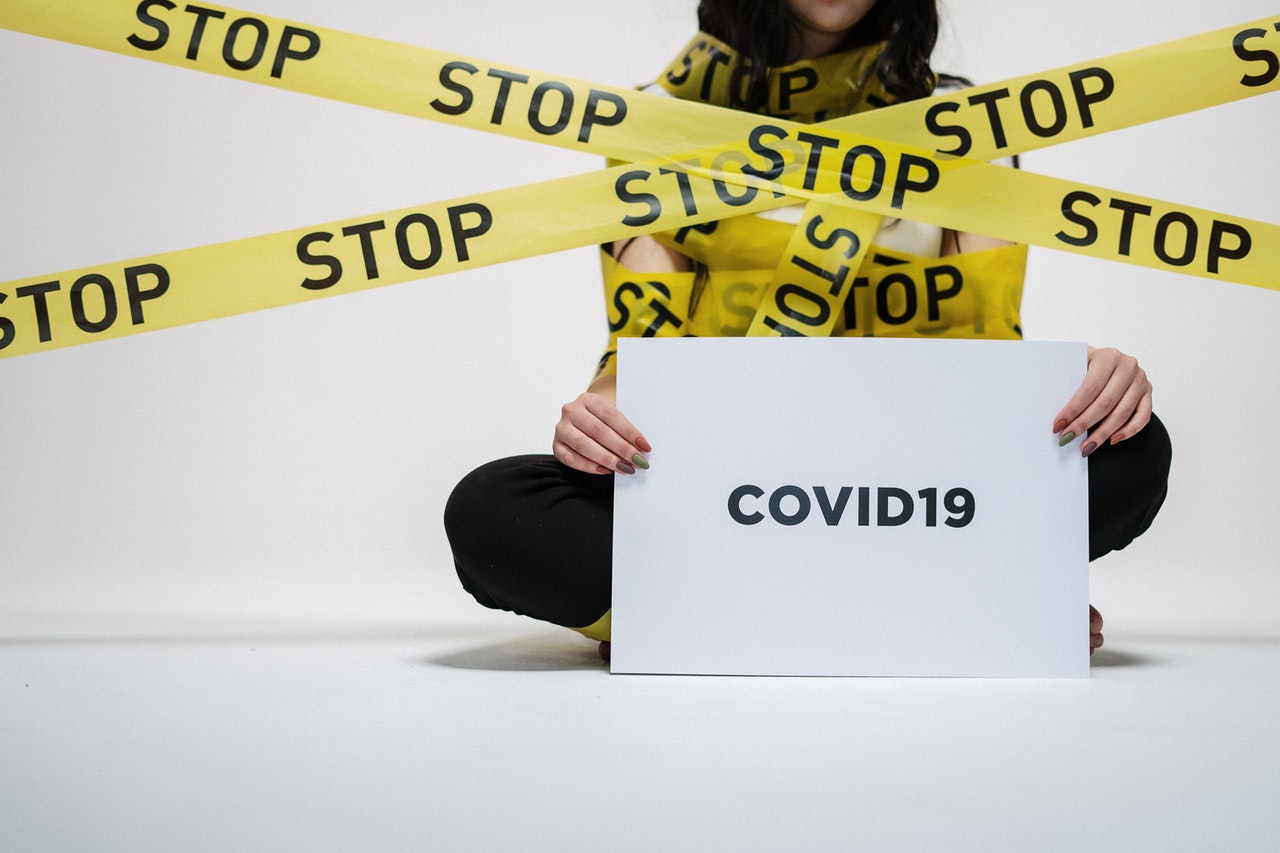 KANKAKEE – State Senator Patrick Joyce (D-Essex) announced the Illinois Department of Public Health will operate a temporary COVID-19 testing site now through Tuesday, Nov. 10 from 8:30 a.m. to 4:30 p.m. each day at the Kankakee County Health Department, located at 2390 W. Station Street in Kankakee.
KANKAKEE – State Senator Patrick Joyce (D-Essex) announced the Illinois Department of Public Health will operate a temporary COVID-19 testing site now through Tuesday, Nov. 10 from 8:30 a.m. to 4:30 p.m. each day at the Kankakee County Health Department, located at 2390 W. Station Street in Kankakee.
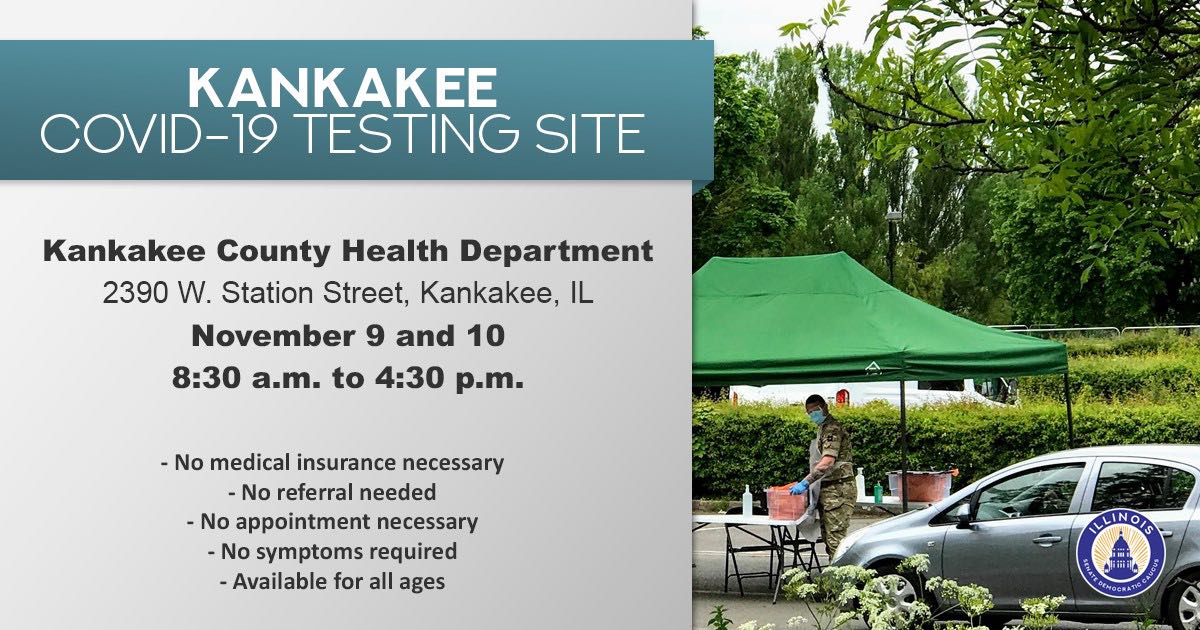 “A critical part of overcoming this virus is getting tested,” Joyce said. “This site will allow us to ramp up our testing capacity in Kankakee County and help reduce the spread in our community. I urge folks to get tested.”
“A critical part of overcoming this virus is getting tested,” Joyce said. “This site will allow us to ramp up our testing capacity in Kankakee County and help reduce the spread in our community. I urge folks to get tested.”
Read more: Joyce secures temporary COVID-19 testing site in Kankakee, urges residents to get tested
- Details
- Category: Senator Scott Bennett News
 DANVILLE – In recognition of the sixth annual National Apprenticeship Week, State Senator Scott Bennett (D-Champaign) joins the Illinois Department of Labor and U.S. Department of Labor in celebrating and promoting the value of apprenticeships.
DANVILLE – In recognition of the sixth annual National Apprenticeship Week, State Senator Scott Bennett (D-Champaign) joins the Illinois Department of Labor and U.S. Department of Labor in celebrating and promoting the value of apprenticeships.
National Apprenticeship Week is a nationwide celebration from Nov. 8-14 that gives businesses, communities and educators the opportunity to highlight their apprenticeship programs and apprentices, as well as demonstrate the value apprenticeship programs offer businesses, career seekers and their communities.
- Details
- Category: Senator Ram Villivalam News
 CHICAGO – As COVID-19 cases and hospitalizations continue to rise, State Senator Ram Villivalam (D-Chicago) is urging residents to take advantage of a new temporary testing site set up at the Lincolnwood Town Center parking lot.
CHICAGO – As COVID-19 cases and hospitalizations continue to rise, State Senator Ram Villivalam (D-Chicago) is urging residents to take advantage of a new temporary testing site set up at the Lincolnwood Town Center parking lot.
“We need to continue our strong testing and contact tracing operations to stay ahead of the virus and keep our positivity rates down,” Villivalam said. “This temporary testing site a way to make it easier than ever to get a fast, easy and free test, but it’s also key to being able to safely reopen our state and economy. Testing and contact tracing are vital to being able to continue getting back to normal activities without compromising on our health and safety.”
- Details
- Category: Senator Robert Peters News
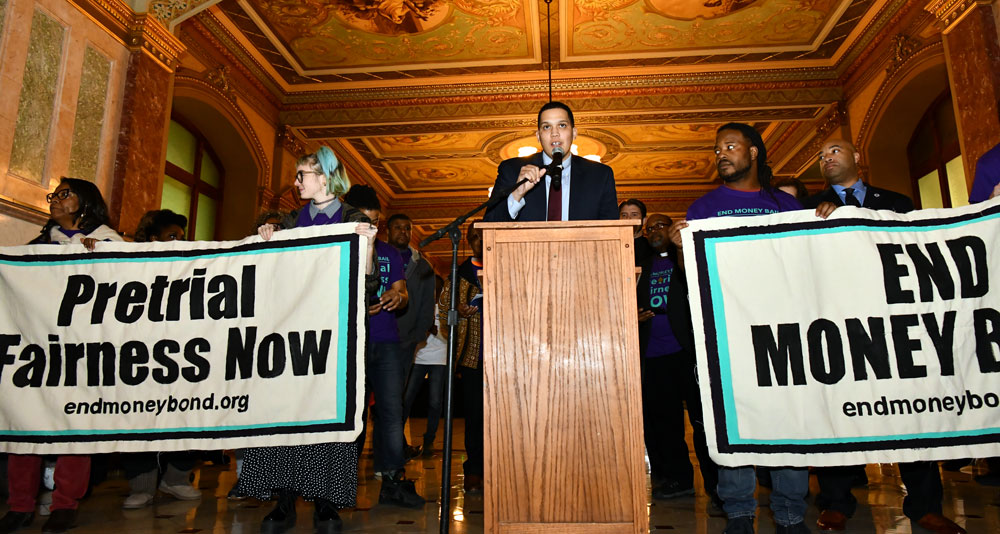 SPRINGFIELD – In the wake of months-long nationwide protests against police brutality and misconduct, State Senator Robert Peters (D-Chicago) took the first step toward reforming the criminal justice system last week by filing the Pretrial Fairness Act, which would end cash bail in Illinois.
SPRINGFIELD – In the wake of months-long nationwide protests against police brutality and misconduct, State Senator Robert Peters (D-Chicago) took the first step toward reforming the criminal justice system last week by filing the Pretrial Fairness Act, which would end cash bail in Illinois.
“For many people, the definition of ‘criminal justice’ ends at the point of arrest, but it’s important to realize the true size of the entire system,” Peters said. “The reality is that the criminal justice system is large, wide reaching, and full of systemic injustice from top to bottom. The hope is that the Pretrial Fairness Act will be the first in a long series of reforms to reshape the system that has destroyed so many families.”
- Details
- Category: Senator Patricia Van Pelt News
 CHICAGO – Senate Public Health Chair Patricia Van Pelt and Health and Human Services Chair Julie Morrison will lead a joint Senate committee hearing Monday morning to discuss policy recommendations to combat disparities in Illinois health care systems, including access to health care, behavioral health and diversity in health care/culturally competent health care.
CHICAGO – Senate Public Health Chair Patricia Van Pelt and Health and Human Services Chair Julie Morrison will lead a joint Senate committee hearing Monday morning to discuss policy recommendations to combat disparities in Illinois health care systems, including access to health care, behavioral health and diversity in health care/culturally competent health care.
“Over the past few weeks, we’ve heard about the many ways our state needs health care reform,” Van Pelt said. “I’m looking forward to this last panel, and to begin implementing some of the policies that top industry professionals have suggested. I am hopeful these suggested policies will help bring equity and justice to our state’s health care system.”
“Stakeholders from around our state have weighed in with their concerns and challenges,” Morrison said. “This final subject matter hearing will highlight some of our best and brightest academics to provide policy recommendations to make our state’s health care resources accessible across demographic, racial, and geographic lines.”
Additional witnesses can submit written testimony online at www.ilga.gov.
To watch the virtual committee, visit https://ilga.gov/senateaudvid.asp and click "Watch Live Virtual Committee Video." The link will be available at 9:30 a.m.
WHO: Senate Public Health Committee Chair Patricia Van Pelt (D-Chicago) and Health and Human Services Committee Chair Julie Morrison (D-Lake Forest), and members of the committees
WHAT: A joint committee hearing on policy recommendations for disparities in health care
WHERE: The virtual hearing can be viewed here: https://ilga.gov/senateaudvid.asp#. Blue Room Stream, a subscription-based service, will also stream the hearing.
WHEN: Monday, Nov. 9 at 9:30 a.m.
- Details
- Category: Majority Report
Saying goodbye
SPRINGFIELD — Senate President Don Harmon (D-Oak Park) issued the following statement after former Senator Maggie Crotty passed away:
"I was saddened to learn of the passing of Maggie Crotty, someone with whom I dearly loved working.
"Maggie and I came into the Senate at the same time. She had a rare combination of tenacity and toughness mixed with a kind and gentle demeanor. She would greet everyone with a smile and a hug, but she could size up a huckster a mile away. She never failed to stand up for the causes that were important to her."
Stadelman announces completion of I-39 and other major road projects
ROCKFORD — State Senator Steve Stadelman (D-Rockford) is pleased to report that the Illinois Department of Transportation announced Friday that I-39 resurfacing and two other major projects that will enhance safety while helping to grow the regional economy are wrapping up.
The projects represent a total investment of more than $55 million in the region.
“These projects helped create jobs and set the Rockford region up for economic opportunity for years to come,” Stadelman said. “Maintaining our roads and bridges is vitally important.”
Black Caucus Roundup for week of Nov. 2
SPRINGFIELD — As the scheduled fall veto session quickly approaches, the Illinois Legislative Black Caucus continues to host a number of hearings in preparation of passing its legislative agenda to combat systemic racism.
The Senate Education and Higher Education Committees held a joint hearing Wednesday to focus on efforts to prepare Illinois youth to enter the workforce. The committee touched on career and technical education (CTE) programs, the Illinois Pathways program, and the Illinois Postsecondary Workforce Readiness Act.

In case you missed it
MEMBERS IN THE NEWS
Senator Rachelle Crowe, Glen Carbon: 29 local businesses awarded state funds, but more can apply | RiverBender
Senator Pat McGuire, Crest Hill: McGuire urges COVID-19 cooperation | The Times Weekly
Senator Julie Morrison, Lake Forest: Morrison urges people to get tested for COVID-19, shop small | Patch
Senator Celina Villanueva, Chicago: Small business grants will help keep community vibrant | SenatorVillanueva.com
We are hiring!
Are you a videographer with public relations skills looking to work for the Illinois Senate Democratic Caucus?
Good news: we are hiring! Learn more and apply.
Copyright 2020 - Illinois Senate Democratic Caucus - All Rights Reserved
- Details
- Category: Senator Christopher Belt News
 EAST ST. LOUIS – In order to remove the growing concerns of procedural fairness in all industries for people of color, State Senator Christopher Belt (D-Centreville) says equity in food access, agriculture, cannabis and technology needs to further addressed.
EAST ST. LOUIS – In order to remove the growing concerns of procedural fairness in all industries for people of color, State Senator Christopher Belt (D-Centreville) says equity in food access, agriculture, cannabis and technology needs to further addressed.
“Accessing healthy food is still a challenge for many families, particularly those living in low-income neighborhoods, communities of color and rural areas,” Belt said. “Food insecurity has heavily increased during the COVID-19 pandemic and the issue needs to be further addressed.”
On Friday, the Senate Executive, Commerce and Economic Development, and Agriculture Committees held a joint hearing on equity in food access, agriculture, cannabis and technology. The discussion focused on increasing access to healthier foods in food deserts, threats to agricultural lands, equity in rural, suburban and urban farming, and equity in the cannabis industry.
Read more: Belt: Accessing healthy food is still a challenge for many families
- Details
- Category: ILBC Committee Roundup
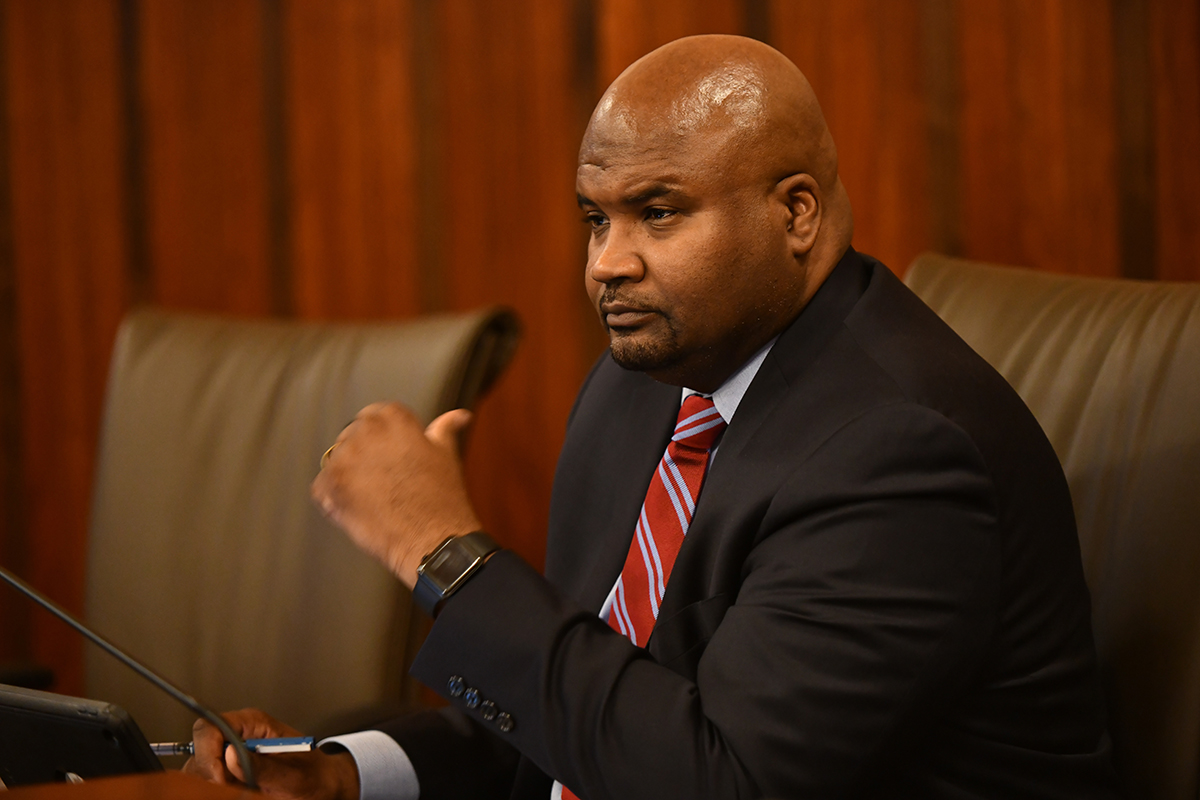
As the scheduled fall veto session quickly approaches, the Illinois Legislative Black Caucus continues to host a number of hearings in preparation of passing its legislative agenda to combat systemic racism.
The Senate Education and Higher Education Committees held a joint hearing Wednesday to focus on efforts to prepare Illinois youth to enter the workforce. The committee touched on career and technical education (CTE) programs, the Illinois Pathways program, and the Illinois Postsecondary Workforce Readiness Act.
“With few or no work experience programs available in their communities, students can’t build the job readiness skills they’ll need to excel in the workforce after graduation,” said Senate Majority Leader Kimberly A. Lightford (D-Chicago). “CTE programs are an essential part of preparing students for high-demand, skilled careers.”
Read more: Black Caucus Committee Roundup for week of Nov. 2
More Articles …
Page 603 of 768

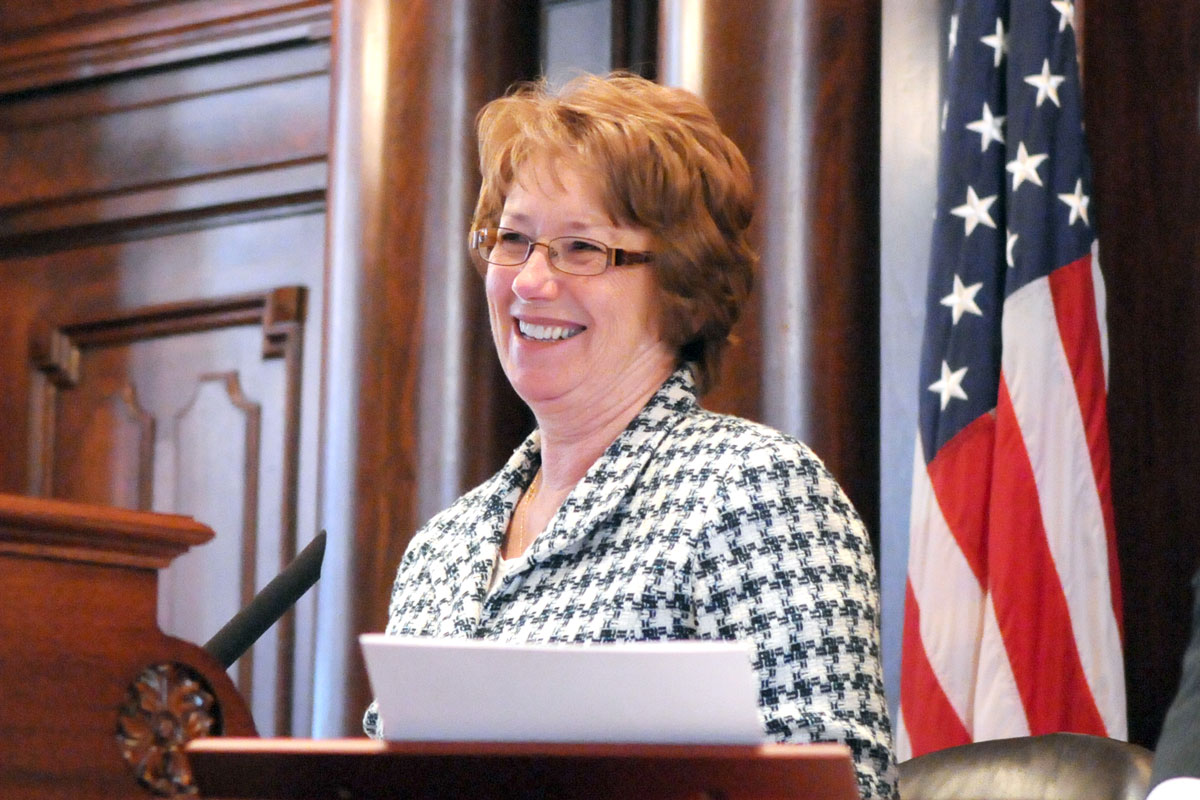
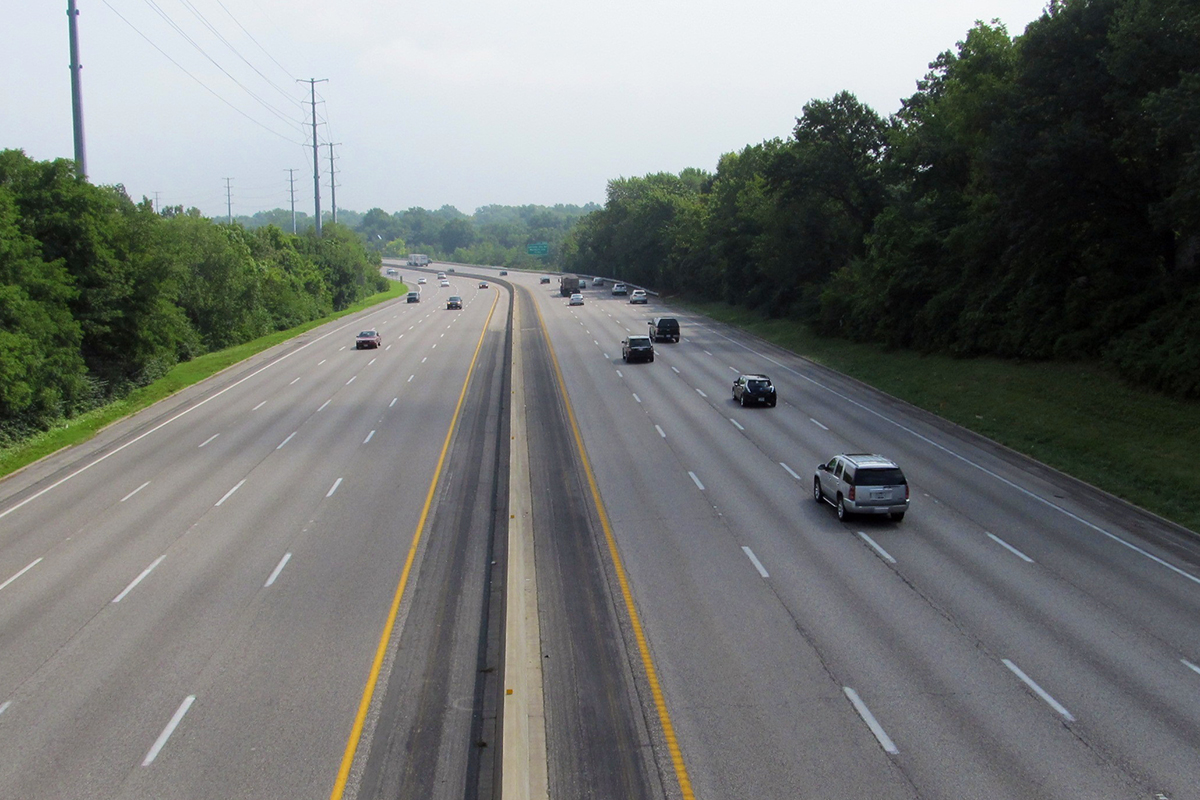
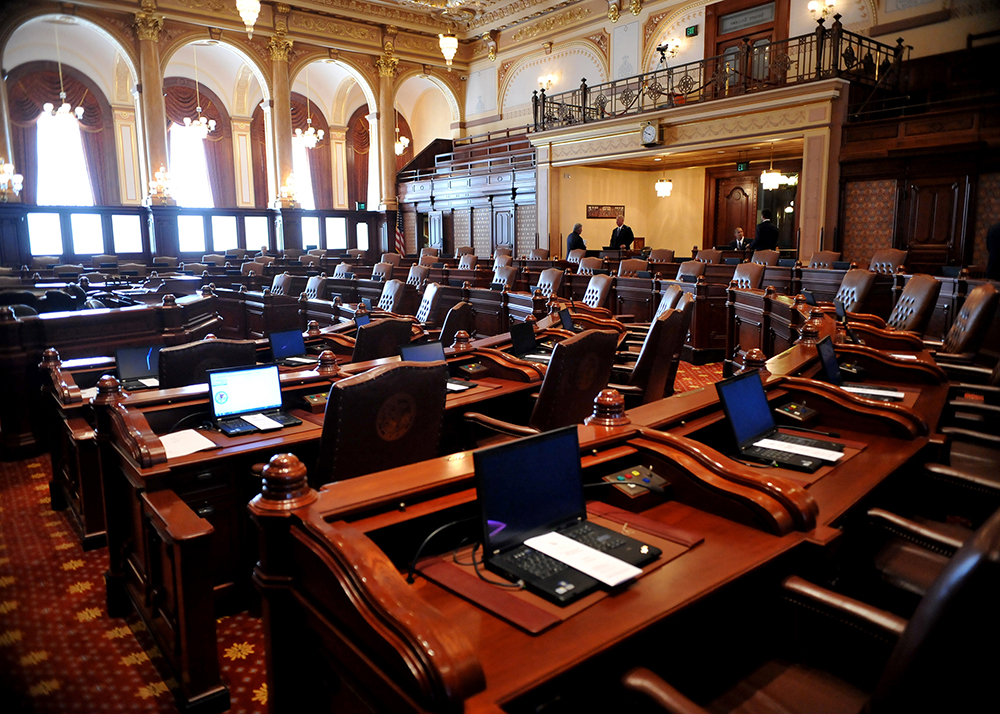












 © 2026 Illinois Senate Democratic Caucus
© 2026 Illinois Senate Democratic Caucus